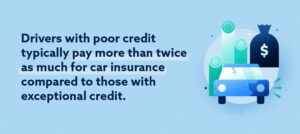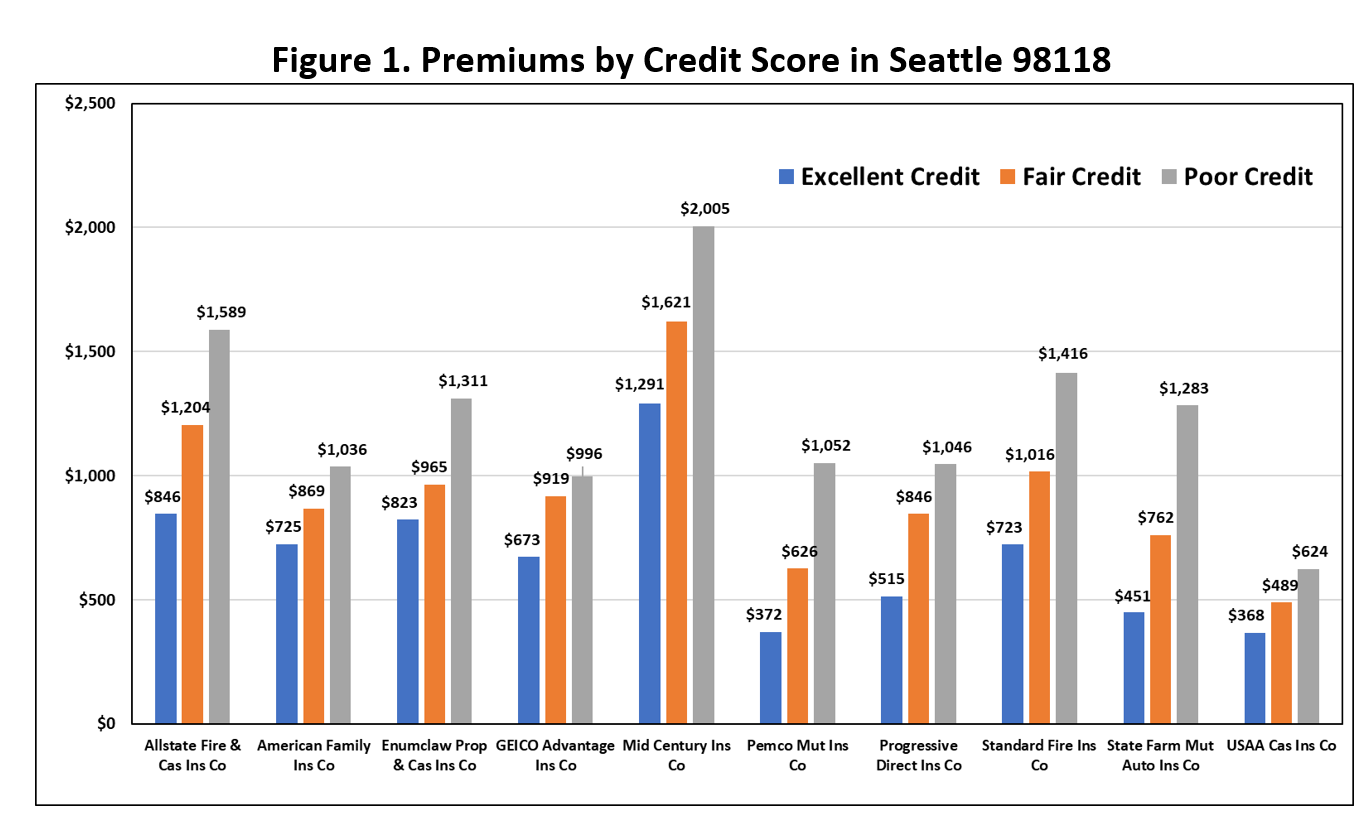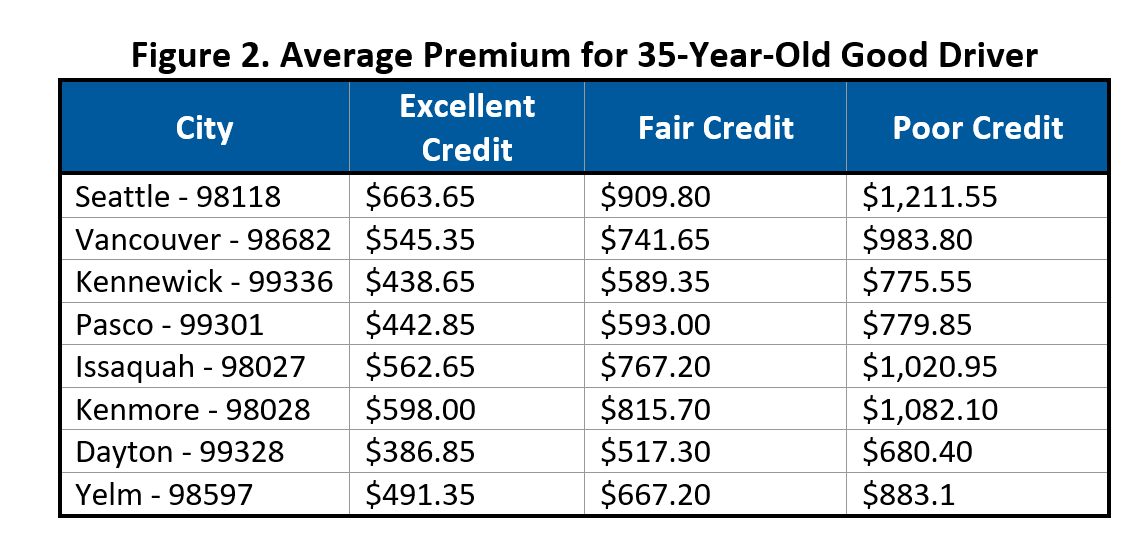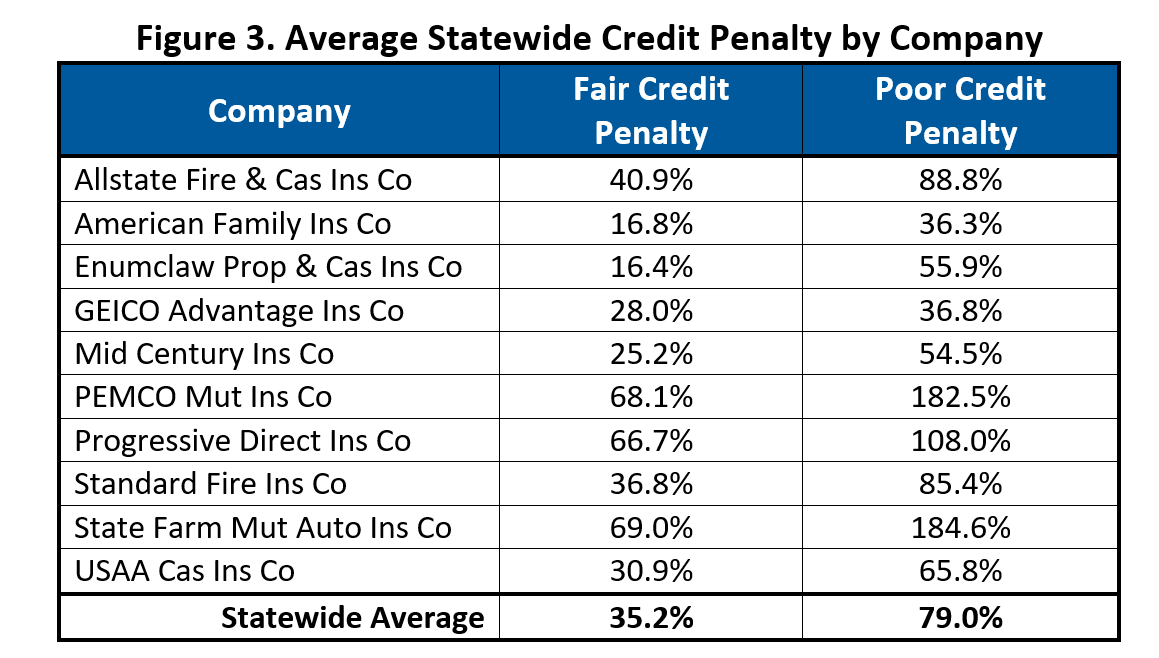Auto, Renters & Home Insurance Rates Changing starting June 20th!
 Washington state Insurance Commissioner Mike Kreidler has issued an emergency rule prohibiting insurers from using credit scoring to set rates for auto and personal property for three years after the current coronavirus pandemic is declared over. Essentially, if you have a good credit score you will pay dramatically more (up to 50% higher) once your auto or home insurance renews after June 20th. So call us today to lock in your lower rate. Scroll all the way down to see some data on what carriers are charging now. The odd thing is the insurance carriers are not really telling us what the rates are going to be after June 20th, which concerns me.
Washington state Insurance Commissioner Mike Kreidler has issued an emergency rule prohibiting insurers from using credit scoring to set rates for auto and personal property for three years after the current coronavirus pandemic is declared over. Essentially, if you have a good credit score you will pay dramatically more (up to 50% higher) once your auto or home insurance renews after June 20th. So call us today to lock in your lower rate. Scroll all the way down to see some data on what carriers are charging now. The odd thing is the insurance carriers are not really telling us what the rates are going to be after June 20th, which concerns me.
If you have bad credit, call us after June 20th. Overall the insurance companies are not going to be able to use your credit score in the price you pay for auto and home insurance anymore. This may be a good or bad thing for you, as those with a great or decent credit score will pay more and those with a moderate or bad credit score will pay less once your insurance policy renews. However, there is a way to lock in a lower price, at least for close to another year…we will show you how!
Give us a call or text us at 425-802-2783. We work with over 12 auto and home insurance carriers and now is a great time to shop out for the best deal. We will help you get the best price for your coverage. This new change could dramatically impact the monthly price you pay for insurance.
The emergency rule will apply to insurance for auto, renters and homeowners insurance. In Washington State, drivers with low credit scores are charged up to 80% more for auto insurance. As of June 20th, 2021, insurance companies will not be able to take good or bad credit scores into account. Which means auto and home insurance carriers will need to re-rate all policies once your coverage renews.
See below for more specific information based on insurance carriers and a more detailed overview of insurance rates.
Gary Franke, Tamara Chandler, Julia Phipps
Independent Broker
Achieve Alpha Insurance LLC
12505 Bel-Red Rd, Ste 106
Bellevue, WA 98005
425-802-2783 (call or text office line)
health@achieve-alpha.com
www.achieve-alpha.com
New data released by Consumer Federation of America (CFA) show that good drivers in Washington State face auto insurance penalties of 35% if they have Fair credit histories rather than Excellent credit, and those with Poor credit pay 79% more on average. Citing premium data from Quadrant Information Services, LLC, CFA highlighted the premium hikes imposed by 10 of Washington’s largest insurers throughout the state.
Testing only premiums for good drivers purchasing the minimum state-mandated coverage (as further described in the Base Profile at the end of this release) CFA found:
- Statewide, safe drivers with Poor credit pay 80%, or $370, more on average than a driver with Excellent credit, all else being equal;
- Premiums increase by 35% ($165) on average statewide for a good driver with Fair credit rather than Excellent credit;
- State Farm charges the highest credit score penalty of 69% for drivers with Fair credit and 185% for drivers with perfect records but Poor credit; PEMCO charges the next highest credit history penalty – 68% for Fair credit drivers and 183% for Poor credit;
- Even the smallest credit score penalty, imposed by American Family, forces safe drivers with Fair Credit to pay 17% higher premiums and those with Poor credit to pay 36% more; and
- In Seattle, the average annual premium rises by $508 for a safe driver with Poor credit, and by more than $700 for customers of either Allstate or State Farm.
The data make it clear that drivers with anything less than excellent credit face penalties in Washington State and they have to pay substantially more for mandatory auto insurance than if they had better credit scores, even when they have perfect driving records. The legislature is considering SB 5010, which would ban the use of credit scores in determining rates for personal lines of insurance, such as auto and homeowners coverage. The bill is sponsored by Senator Das, supported by Insurance Commissioner Kreidler, and included in Governor Inslee’s equity policy package. Passing this law will make auto insurance more affordable for safe drivers with fair or poor credit.
“Since state law requires that every driver buy insurance, the insurance companies should have to price policies fairly and give every good driver the best price, regardless of their credit history,” said Doug Heller, CFA’s Insurance Expert. “By punishing drivers with clean driving record but less than perfect credit, the insurance companies make coverage more expensive for those least able to afford it. Because systemic biases have made credit less available to people of color, this insurance industry practice perpetuates structural racism.”
The Washington premium data reviewed by CFA include premium quotes for minimum limits auto insurance coverage from the state’s 10 largest insurers in every ZIP code. For each company, CFA reviewed the premium charged to 35-year-old drivers with different credit scores. Every premium in the database CFA used for the analysis is for a driver who has no accidents and no tickets in their driving history and who drives a 2011 Honda Civic 12,000 miles per year. Though the degree of the premium hike varied by company, every insurer analyzed increased premiums to good drivers with either Fair or Poor credit scores (often called “credit-based insurance scores”) compared to the same driver if they had Excellent credit.
The chart below shows the premiums quoted to a female driver living in the Rainier Valley neighborhood of Seattle (98118) by all 10 companies according to her credit score. While the cheapest basic limits policy for the driver with an Excellent credit history (excluding USAA, which requires policyholders to have a military affiliation) is $372 from PEMCO, the best rate a driver with poor credit can find in 98118 is the $996 premium offered by Geico. That’s $624 more for drivers with perfect records even after shopping nine different companies.
Figure 2 below shows the credit based premium differences in several communities around the state, illustrating that the credit penalty is imposed on safe drivers no matter where they live. In fact, in the 616 ZIP Codes tested in Washington, Excellent credit drivers’ premiums average less than $500 per year for basic coverage in 426 ZIPs. Fair credit drivers only saw average premiums below $500 in 43 ZIP codes, and there are no ZIP codes in the state where premiums average less than $500 for good drivers with poor credit. Even in the Okanogan County ZIP Code 98814, which has the least expensive auto insurance in the state, premiums for safe drivers with Poor credit average $625. This is actually higher than what companies charge Seattle drivers with Excellent credit, which averages $623 across the city.
Figure 3 shows the different penalties applied by each of the 10 companies reviewed by CFA. State Farm and PEMCO impose the most significant surcharge on lower credit drivers, while American Family and GEICO Advantage charge the lowest (but still large) penalties.
“No matter where you live and how much you shop around, if your credit score is not great, you will be penalized when you buy insurance,” said CFA Insurance Advocate Michael DeLong. “This can and should be fixed by the legislature.”
Data for this report were acquired by Consumer Federation of America from Quadrant Information Services, LLC. The data are representative of publicly sourced data using the variables and base profile defined below and individual rates may differ.https://consumerfed.org/press_release/washington-insurance-commissioner-kreidler-protects-consumers-from-unfair-insurance-credit-scoring/



